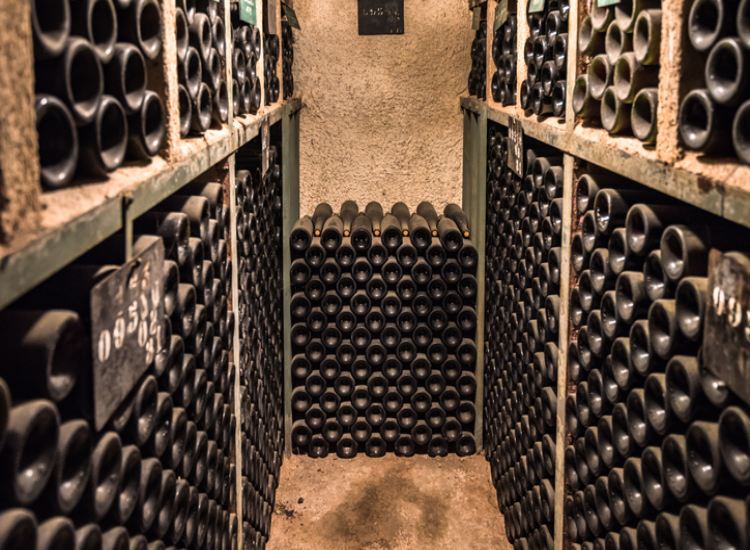Does My Wine Cellar Need a Cooling Unit?
Wine storage is more than simply placing bottles in a dark, cool room; maintaining the right environmental conditions is essential for preserving wine quality and flavor. With wine’s sensitivity to temperature and humidity, even subtle fluctuations can affect its aging process and quality. For wine collectors and enthusiasts, ensuring ideal storage conditions is a priority. But is a wine cellar cooling unit necessary? This article delves into why a wine cellar cooling unit might be essential for some collectors, explores the signs that indicate when one is needed, and provides tips for selecting the right unit for your residential wine cellars.

What Is a Wine Cellar Cooling Unit?
A wine cellar cooling unit is a device specifically designed to control temperature and humidity in a wine storage area, ensuring optimal conditions for long-term wine preservation. Unlike standard air conditioners, wine cellar cooling unit services are tailored to maintain a steady temperature (ideally around 55°F) and humidity level (typically around 60–70%). These specific settings prevent premature aging, oxidation, and other issues that can compromise wine quality. By stabilizing temperature and humidity, a cooling unit prevents spoilage and preserves the wine’s character over time.
Signs You Might Need a Wine Cellar Cooling Unit
Several factors can indicate the need for a wine cellar cooling unit:
- Inconsistent Temperature and Humidity: If your wine storage area experiences fluctuations in temperature or humidity, it might be time to consider a cooling unit. Changes in these conditions can negatively impact the wine, affecting both taste and quality.
- Long-Term Storage Needs: For collectors who store wine over years or decades, maintaining stable conditions is crucial. A cooling unit ensures that valuable wine collections are stored in ideal conditions for aging.
- Environmental Challenges: In areas prone to high temperatures or dry conditions, like some regions in the U.S., wine may be more susceptible to environmental factors that could harm its quality. A cooling unit helps counteract these environmental threats, preserving both taste and investment.
Fluctuating conditions, even slight temperature spikes, can cause the wine to expand and contract within the bottle. This constant movement can damage the cork, potentially exposing the wine to air, which accelerates spoilage and alters the wine’s intended flavor. Inconsistent humidity can dry out corks, leading to similar degradation risks. If you notice any of these signs, a cooling unit may be essential to ensure the integrity of your wine.
Benefits of Installing a Wine Cellar Cooling Unit
Investing in a wine cellar cooling unit comes with multiple benefits:
- Temperature Control: A wine cellar cooling unit maintains an ideal temperature range, preventing wine from overheating or becoming too cold. This consistency preserves the wine’s original characteristics and flavor profile.
- Humidity Control: Proper humidity levels prevent corks from drying out and protect wine labels from deterioration, which can be vital for both aesthetic and functional reasons.
- Extended Wine Longevity: A cooling unit promotes the proper aging process, allowing wine to reach its full potential and ensuring quality over the years. For valuable wine collections, this can be an important factor in preserving investment.
- Peace of Mind: Knowing that your wine collection is stored under stable conditions can offer reassurance, especially for enthusiasts who want to protect their investment.
Choosing the Right Wine Cellar Cooling Unit
When selecting a wine cellar cooling unit, several factors can help determine the best fit:
- Size and Capacity: The size of your cellar and its insulation level are key considerations. For example, a small wine cellar cooling unit may suffice in a well-insulated cellar, while a larger or less insulated cellar may require a more powerful unit.
- Climate Considerations: Depending on the local climate, some cellars may require units with enhanced cooling capabilities, particularly in hot, dry areas.
- Energy Efficiency: Look for energy-efficient options to minimize costs and environmental impact. Units with eco-friendly features can provide temperature control without excessive power use.
- Noise Level: Some cooling units can be loud, which may impact where they’re installed. It’s important to consider the noise output, particularly if the cellar is located near living areas.
While selecting a unit, consulting with cellar cooling equipment and installation services can be helpful. Experts can assess your space, recommend the best model, and ensure compatibility with your cellar’s unique design, whether you have stone, wooden, or metal wine racks.
What Happens If You Don’t Have a Wine Cellar Cooling Unit?
For those storing wine without a cooling unit, there are potential risks to consider:
- Temperature and Humidity Fluctuations: Without regulated cooling, wine may age too quickly or spoil, compromising its intended taste and character.
- Cork Degradation: Low humidity can cause corks to dry out, allowing air to seep into the bottles, which accelerates oxidation and spoilage.
- Loss of Quality and Value: Valuable collections can lose their appeal, and their market worth may decrease if the wine’s integrity has been compromised by improper storage conditions.
Frequently Asked Questions (FAQs)
Can I store wine without a cooling unit in Colorado?
Colorado’s climate varies, with some areas experiencing dry, warm conditions that could impact wine quality. While certain regions might have cool basements, they often lack the necessary humidity, making a cooling unit advisable.
What’s the ideal size of a wine cellar cooling unit for a small cellar?
For small wine cellars, a compact unit often suffices. A small wine cellar cooling unit tailored to the cellar’s dimensions and insulation level can provide effective temperature and humidity control.
How much does it cost to install a wine cellar cooling unit?
Costs can vary widely based on cellar size, cooling unit specifications, and installation services. Generally, installation expenses can range from $1,000 to $10,000, depending on these factors.
How often do cooling units require maintenance?
Regular maintenance ensures optimal performance. Tasks may include filter changes, annual inspections, and checking for issues requiring wine cellar cooling unit repair. Typically, units should be serviced annually to avoid costly repairs and ensure proper function.
Customize Your New Wine Cellar With Red Leaf Solutions
For wine collectors and enthusiasts looking to protect and preserve their collection, a wine cellar cooling unit is essential for maintaining wine quality over time. Installing the right cooling system doesn’t just safeguard the flavor and character of each bottle but also supports the long-term value of your entire collection. If you’re exploring the possibility of a cooling unit, assessing your cellar’s specific needs and consulting with a professional can provide invaluable guidance. At Red Leaf Solutions, serving Larkspur, Colorado, and beyond, we combine expert knowledge and an eye for detail to create custom wine cellars tailored to each client’s vision. Contact us today to explore how we can help you design a beautiful, climate-controlled cellar to showcase and preserve your wines.
